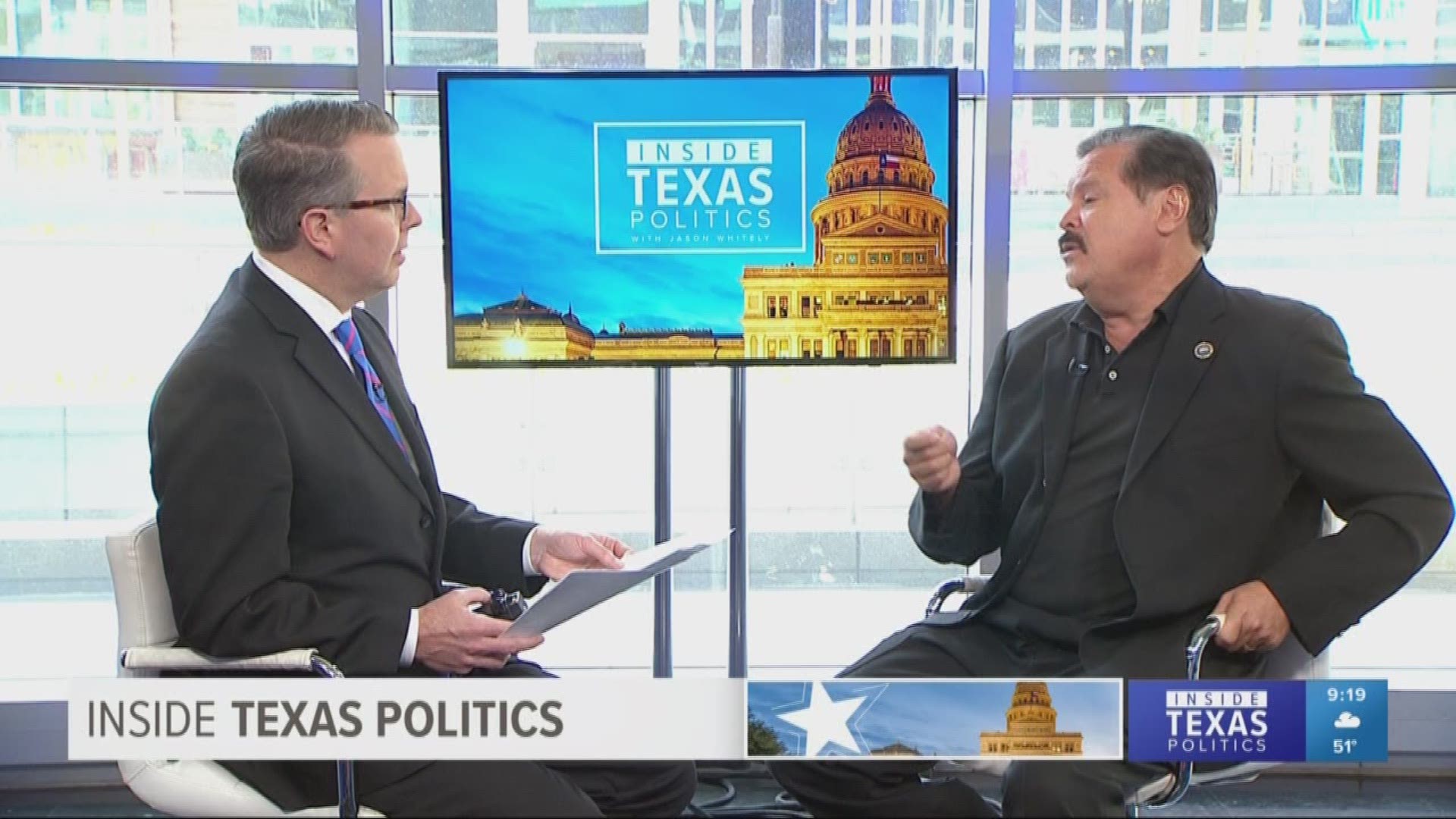This story originally appeared in The Texas Tribune.
After excessive voting lines on Super Tuesday forced Texans to wait up to six hours to vote, state lawmakers are directing their attention toward challenges voters faced in trying to cast ballots for the presidential primary election.
The Mexican American Legislative Caucus announced Thursday it would hold a joint hearing this month with the Texas Legislative Black Caucus and the Texas Legislative Study Group, a nonpartisan caucus, to hear from election officials, experts and voters affected by long lines and other issues at the polls.
“Texas must quickly fix the problems encountered by voters during Primary Election Day so that we do not see a repeat of these failures during the November General Election,” state Rep. Rafael Anchía, the Dallas Democrat who chairs MALC, said in a statement. “We received reports of limited polling locations, workers and machines, ridiculously long lines, equipment malfunctions and elections website failures.”
Lawmakers are wading into the matter days after Texas voters ran into a series of issues, including voting sites that opened late, insufficient voting equipment or staff at polling places and, perhaps most notably, hourslong waits to cast their ballots. Voters in Houston, in Dallas and at Texas State University reported waiting in unusually long lines hours after polls closed. Voters who jumped into line just before the 7 p.m. cutoff were still waiting to vote several hours later.
Some of the worst issues were experienced in Harris County. Insufficient voting machines at sites serving mostly black and brown communities, in part, led to wait times that exceeded four hours after polls closed. Voters at Texas Southern University were still making their way to the front of line almost six hours after polls closed.
RELATED: Harris County's cascade of election day fumbles disproportionately affected communities of color
In other areas of the state, voters faced slowdowns attributed to faulty ballot printers, and in at least one case, a voting site was temporarily shut down over technical issues with voting equipment. The secretary of state’s portal, where voters can look up their registrations, also went down on the morning of election day over what an agency spokesman described as significantly heavy traffic.
Pointing to those issues, the Texas Civil Rights Project also called on state and county officials Thursday to address a “crisis point” that disenfranchised voters across the state ahead of the November general election.
“The State of Texas must recognize Tuesday as the alarm that it was,” Mimi Marziani, president of the Texas Civil Rights Project, wrote in a letter sent to the Texas secretary of state and election administrators in some of the state’s largest counties, where some of those issues were documented Tuesday.
More than 4 million ballots were cast in the primary election, with more than 2 million coming in on election day alone. Turnout is expected to be much higher in November.
The Texas Tribune is a nonpartisan, nonprofit media organization that informs Texans — and engages with them – about public policy, politics, government and statewide issues.
Disclosure: Texas State University and the Texas secretary of state have been financial supporters of The Texas Tribune, a nonprofit, nonpartisan news organization that is funded in part by donations from members, foundations and corporate sponsors. Financial supporters play no role in the Tribune's journalism. Find a complete list of them here.
More on the Super Tuesday elections in Texas:
- Dallas County asks to recount Super Tuesday election results after 44 thumb drives discovered
- Inside Texas Politics: Lt. Gov. Dan Patrick isn't worried about Democrats in November
- Just a quarter of registered voters in Texas participated in the 2020 presidential primary
- Shorter wait times, more poll workers the goal for November election in Tarrant County
- More Democratic ballots cast during 2020 primary compared to 2016 in Dallas-Fort Worth
- Why does Super Tuesday matter so much, and what role does Texas play?

